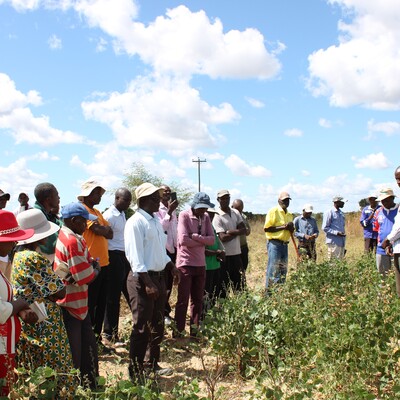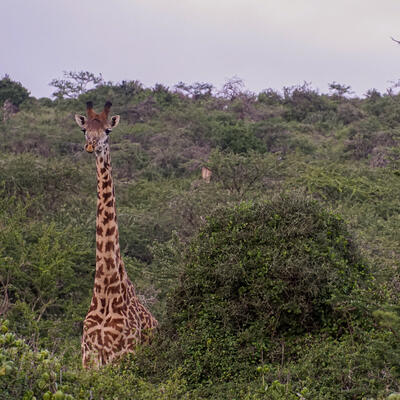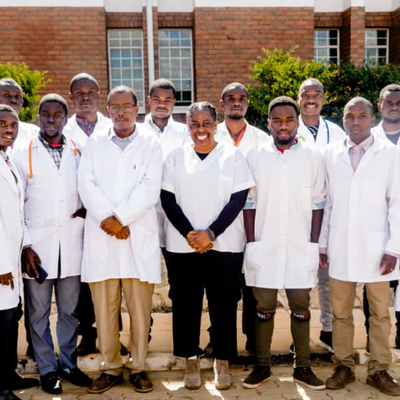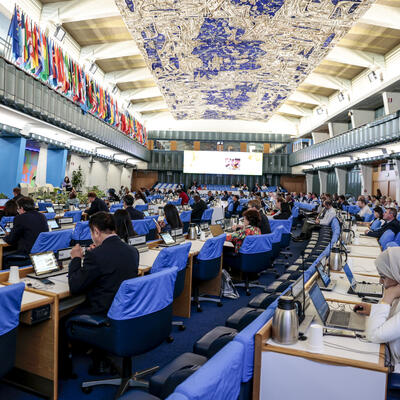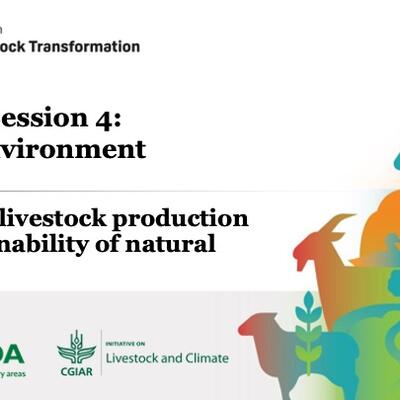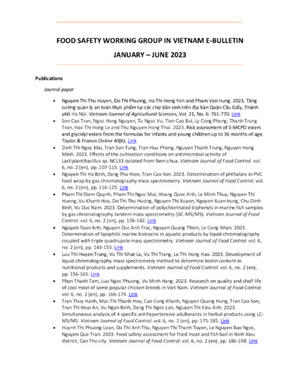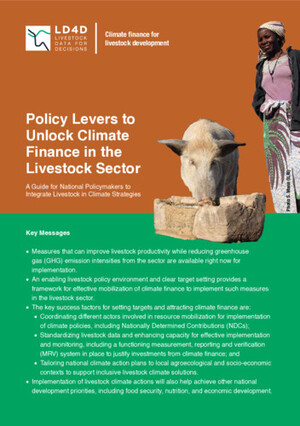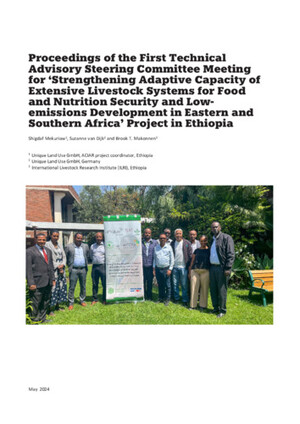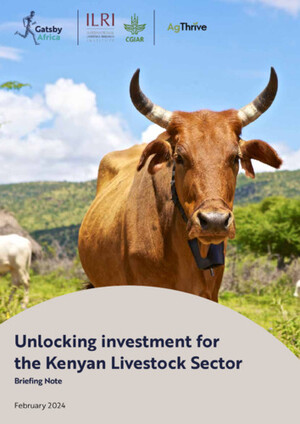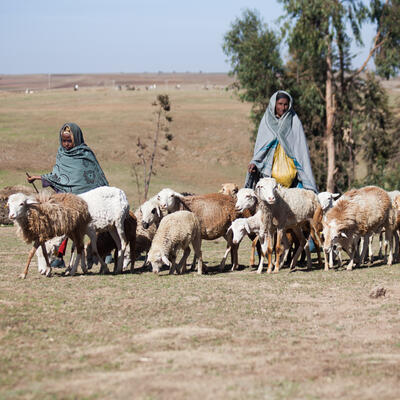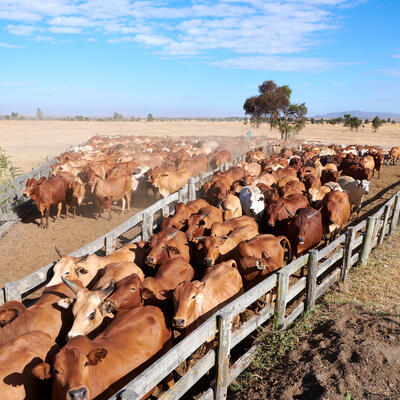
Synergies in food systems transformation: CGIAR leads a dialogue with cross-sector stakeholders in Vietnam
Transforming food systems can help attain many of the Sustainable Development Goals (SDGs), according to a community of experts who are joining forces to confront challenges in the current food systems in Vietnam.
A CGIAR-led food systems dialogue was held 1 July 2021 in Hanoi to address existing and emerging challenges and opportunities in Vietnam’s agri-food systems and inform policies and investments ahead of the United Nations Food Systems Summit (UNFSS). The meeting brought together 70 participants from state agencies, academia, non-governmental organizations, donor agencies and industry players.
 Panel discussion, from left: Diego Naziri, value chain specialist, CIP, Dao The Anh, vice president, Vietnam Academy of Agricultural Sciences, Pham Duc Phuc, deputy director, Center for Public Health and Ecosystem Research, Hanoi University of Public Health and Tran Manh Chien, founder, Bac Tom foodshop in Hanoi (photo credit: ILRI-Chi Nguyen).
Panel discussion, from left: Diego Naziri, value chain specialist, CIP, Dao The Anh, vice president, Vietnam Academy of Agricultural Sciences, Pham Duc Phuc, deputy director, Center for Public Health and Ecosystem Research, Hanoi University of Public Health and Tran Manh Chien, founder, Bac Tom foodshop in Hanoi (photo credit: ILRI-Chi Nguyen).
As world leaders, policymakers and activists prepare for the UNFSS in September 2021, countries are gathering evidence and identifying key solutions to pressing issues in their local food systems.
In June, CGIAR centres participated and contributed to a series of dialogues convened by the Ministry of Agriculture and Rural Development (MARD) at national and sub-national levels. This independent dialogue organized by CGIAR is an attempt to contribute to Vietnam’s joint efforts in gathering evidence and recommendations to be submitted to the UNFSS.
Vietnam’s food systems are diverse and facing many challenges. Global climate change forecasts and reality in recent years show that Vietnam is heavily affected by the changing climate. The country needs to take specific actions to promote cooperation, synergizing with external forces, towards the formation and development of smart and resilient food systems, ensuring food safety. Enhancing food security and nutrition is essential not only for nearly 100 million Vietnamese but will also contribute to ensuring world food security, especially in the context of development and human health challenges brought on by the COVID-19 pandemic.
Vu Van Tien, deputy director of the Department of Economic Cooperation and Rural Development, Ministry of Agriculture and Rural Development, pointed out some of the current challenges facing the food system in Vietnam. ‘Basic challenges of the food system include the lack of a legal framework, food rights laws, regulations, standards, enforcement capacity, and ineffective coordination among agencies from central to local levels,’ he said. He noted that food production in the country is fragmented and has not integrated large, small, regional and local production systems, meaning the system is largely inefficient, which leads to losses, wastage of resources, and a reduction in diversity and biological resources among other problems.
CGIAR representatives who spoke at the dialogue explained the potential contributions that the global research partnership can make in building responsible, sustainable and resilient food systems in Vietnam with stakeholders in the national food system dialogue. CGIAR partners also noted that the country needs to continue improving food safety, reducing food losses, lowering carbon emissions from food production and implementing landscape-level solutions to make its food systems sustainable. A number of livestock-based interventions that improve livelihoods and protect the environment in the Northwest of the country such as the ‘livestock-led interventions towards equitable livelihoods and improved environment in the North-West Highlands of Vietnam’ project were presented at the meeting. The contribution of root crops in improving resilience to climate change and extreme weather events was also highlighted.
The dialogue facilitated discussions with partners, helping to identify ways in which CGIAR and its partners can work together to identify and address needs and priorities of policymakers in Vietnam.
Dao The Anh, vice president of the Vietnam Academy of Agricultural Sciences (VAAS), said research by CGIAR in Vietnam has contributed to the growth of the country’s agriculture sector, particularly in the use multidisciplinary and integrated approaches to improving the sustainability of the country’s food systems.
Jean Balié, CGIAR regional director for Southeast Asia and the Pacific, emphasized the significance of transforming agri-food systems in the region toward improved environmental, economic and social sustainability as well as climate change resilience. The unified and comprehensive efforts of CGIAR in Vietnam are helping the country achieve this profound and urgent transformation of food systems within planetary boundaries while keeping sight of national socio-economic development targets, said Balié.
‘We are confident that our joint food system research with national partners will help provide the government with actionable solutions for pathways towards more equitable and sustainable food systems’, stated Fred Unger, regional representative for the International Livestock Research Institute (ILRI) in East and Southeast Asia.
CGIAR has been working extensively in various initiatives around Vietnam, ranging from agriculture, nutrition and diets to One Health and climate issues—and more recently contributing to COVID-19 initiatives. Ten out of 15 CGIAR are operating in Vietnam. Among those, the Alliance of Bioversity International and CIAT, the International Potato Center (CIP), the World Agroforestry Centre (ICRAF), ILRI, WorldFish and the International Rice Research Institute (IRRI) contributed substantially to this dialogue.
The second national dialogue is planned on 16 July 2021 to finalize recommendations to be submitted to the UNFSS.






